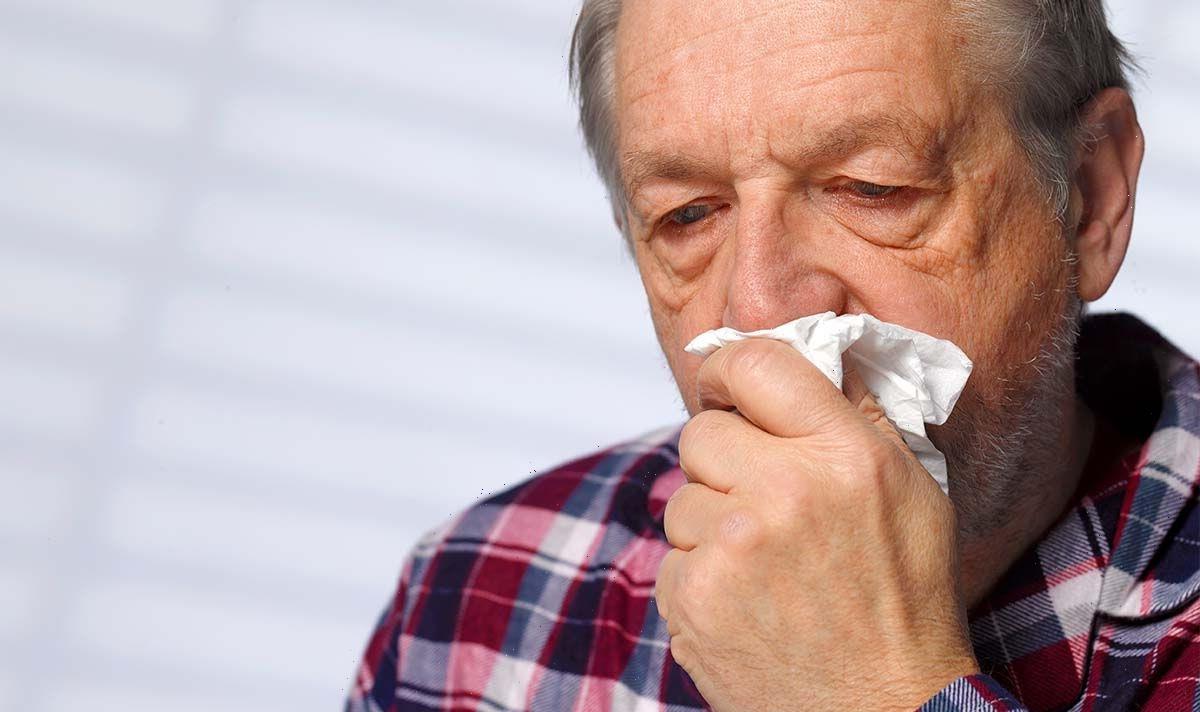This Morning: Dr Zoe talks about new Covid variant XBB1.5
We use your sign-up to provide content in ways you’ve consented to and to improve our understanding of you. This may include adverts from us and 3rd parties based on our understanding. You can unsubscribe at any time. More info
Dubbed “The Kraken”, new Covid XBB.1.5 variant has been recorded in the UK. This Omicron sub-variant has been driving up cases in the US, with experts saying it’s the one to watch. The Kraken is currently thought to trigger symptoms similar to previous Omicron strains; here’s what to look for.
While it’s too early to confirm the exact symptoms the new variant causes, the tell-tale signs are currently thought to be similar to previous Omicron strains.
Health experts and scientists are now monitoring the new sub-variant in order to determine whether it gives dominance to certain symptoms.
But Martin Michaelis, professor of molecular medicine at the University of Kent, told FactCheck “there is no indication” that the symptoms of XBB.1.5 are different from those caused by other Omicron sub-variants.
This means that less traditional symptoms – think sore throat and runny nose – could be rife as Kraken is sweeping through the UK.
READ MORE: Five ‘early’ signs that could signal stroke ‘may be coming in the future’ – how to spot

When Omicron first appeared back in 2021, it cemented itself as a Covid variant that triggers less typical symptoms, leaving cough and loss of smell less prevalent.
The Zoe Covid Study App, which tracks dominant Covid symptoms through their app users, keeps monitoring the most common symptoms in the UK.
According to their latest data from the 30 days leading up to December 5, the “top” symptoms included:
- Sore throat
- Runny nose
- Blocked nose
- Sneezing
- Cough without phlegm
- Headache
- Cough with phlegm
- Hoarse voice
- Muscle aches and pains
- Altered sense of smell.
Furthermore, the NHS states that Omicron symptoms can also include high temperature or shivering, new and continuous cough, change to taste or smell, tiredness and gastric symptoms.
Is Kraken the dominant strain in the UK?
Currently, there are only reports of the strain circulating in the UK but nothing is yet certain.
According to figures for the week ending on Saturday 17 December from the Sanger Institute in Cambridge, one in 25 Covid cases in the UK was triggered by XBB.1.5.
However, the data was based on just nine samples, so a larger scale data set is needed to get a better picture.
READ MORE: Struggling widower had Creme Egg for Christmas Dinner before woman turned his life around
See the latest Covid vaccine stats below and visit InYourArea for all the Covid vaccine latest
The latest data from the Office for National Statistics suggests that around one in 20 people was infected with Covid over the Christmas break.
Cases are estimated to have doubled during December, when the XBB.1.5 Kraken variant began to roam through Britain.
Professor Paul Hunter from the University of East Anglia, said: “The balance of probabilities is that XBB.1.5 will trigger a wave here later this month, but we can’t be sure.”
Is the Kraken variant more dangerous than other Omicron strains?
Covid XBB.1.5 has been labelled the “most transmissible” variant yet by the World Health Organisation(WHO) but it appears to be just as mild as its predecessor Omicron and its other sub-variants.

Dr Maria Van Kerkhove, the WHO’s COVID-19 technical lead, told a press conference on Wednesday: “It is the most transmissible sub-variant that has been detected yet.
“The reason for this is the mutations that are within… this sub-variant of Omicron, allowing this virus to adhere to the cell and replicate easily.
“And we are concerned about its growth advantage, in particular in some countries in Europe and in the US in North America, particularly the northeast part of the United States where XBB.1.5 has rapidly replaced other circulating variants.
“Our concern is how transmissible it is… and the more this virus circulates, the more opportunities it will have to change.”
Source: Read Full Article
